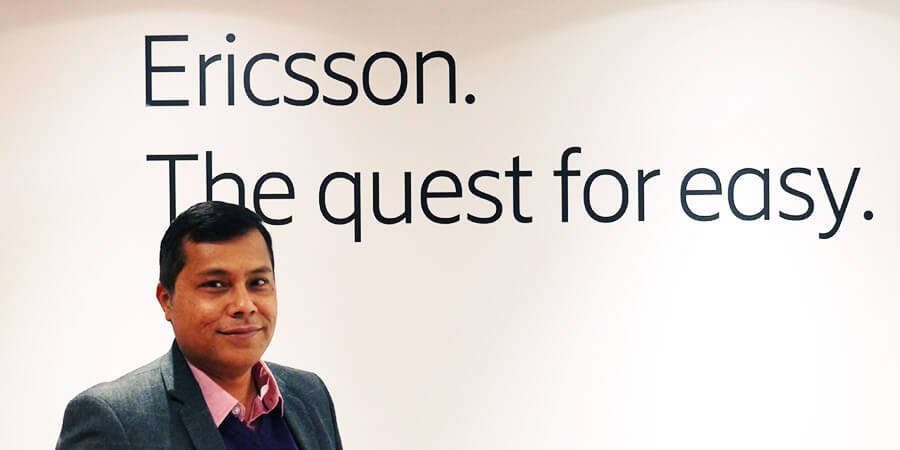Emerging technologies such as IoT, 5G and artificial intelligence are creating new opportunities for telecom providers in the enterprise space, and therefore they require internal systems that 'transcend to enterprise', Ericsson's Head of Digital Services Middle East and Africa (MEA), Indranil Das told Telecom Review. Automation will play a significant role in this, added Ericsson's Head of Managed Services MEA, Eva Andren.
Becoming a digital organization requires fundamentally changing how you do business. This is the challenge Swedish ICT solutions provider Ericsson aims to make easier for its telecom operator customers as they move to upgrade their legacy systems to allow for more flexibility and efficiency to meet the growing demands of consumers in the digital age.
Ericsson's digital services include standard IT systems for communications service providers such as business support systems (BSS) and operations support systems (OSS), and also the network side such as core and cloud virtualization. With the emergence of Internet of Things (IoT), new opportunities are opening up for telecom providers and they require an entirely new platform and ecosystem around it.
Ericsson's Digital Services department plays a role in helping operators to embrace digitization and adopt new business models, Das told Telecom Review. The digitization journey for any operator covers two aspects, he said, the first being mobile consumers and how to digitize their experience; and the second being implementing digitization within an operators' processes. Ericsson works on both, helping operators digitize their processes, as well as digitizing the customer experience.
Digitizing customer experience is a slightly simpler process, according to Das, because it's a result of introducing the right digital processes for the operator to have the capabilities to make the customer experience better. But digitizing an operator from within is "much more difficult" he said, because legacy systems have to be replaced, which causes disruption and often takes time.
Despite the challenges, Das said Ericsson can introduce a new system for an operator within less than a month - a process that usually takes up to six. For one operator in Saudi Arabia, Ericsson was able to launch a new system within 48 hours in time for a large religious event, working together with the operator.
"Things are changing very fast. If you have to wait four to six months, perhaps you will lose the opportunity," said Das, emphasizing operator ambitions to compress time-to-market. "To do that, you need to have the right tools, and that's what we offer." For example, Ericsson has the capability to bundle post-paid and pre-paid packages for operators - an offering that's becoming more common among telecom providers today.
Emerging technologies such as 5G, IoT, and artificial intelligence are opening up enterprise opportunities beyond consumer business for operators. Digitizing the customer experience is still very important, Das said, but operators also need to be thinking about building a platform that transcends to the enterprise and industrial space.
From a Managed Services perspective, Ericsson is increasing its investments in tools and automation to enable greater efficiency for its operator customers, according to Ms. Andren. The company has also expanded its portfolio with energy management where "we are now presenting the proof of concept with new batteries which will also give high value for our customers."
Moving into automation is a financial opportunity for Ericsson, Ms. Andren said, but also a significant area of value for its customers in terms of greater quality and efficiency for its customers' processes. Creating business efficiency today isn't about just reducing head-count, but exploring ways in which automation and digitization can create more value for businesses, she explained.
For example, Ericsson operates the entire network of Norwegian telecom group subsidiary Telenor Myanmar - a project where Ericsson introduced automation and energy management to increase efficiency. "It's a way of getting more out of the network," Ms. Andren said, discussing the benefits of Ericsson's role. "With automation, you don't have to do additional site visits and you can anticipate faults before they even occur."
The more data that's available, the more value Ericsson can create for the network, Ms. Andren added, and that is achieved through machine learning, she explained. The cloud is essential for the way the company manages such projects in order to do remote services, and also from a security aspect.
Ericsson's plan going forward is related to Managed Services IT where the company has made investments that will generate value for its customers. "This is how we plan to grow both in the African region and the Middle East," Ms. Andren said.










